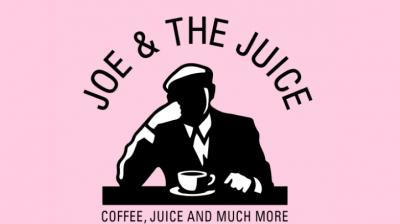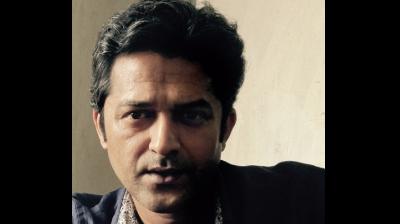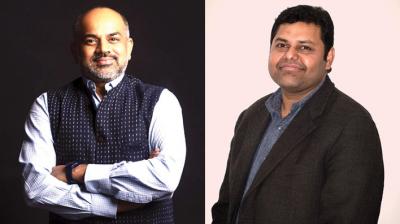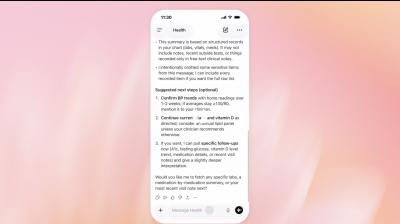Everyone in PR loves answers. Fast ones. Clever ones. Glorious 'campaign of the year' ones. But here’s the irony… the answers don’t matter if we aren’t asking the right questions in the first place.
And that, my friends, is where PR too often stumbles.
PR is a powerful force to reckon with. One that can shape reputations, influence markets, and sometimes even rewrite history. But with great power comes, no, not Spider-Man and definitely not responsibility, but ego.
Yes, you heard that right. We know we can do the job and quickly get into solution mode, throwing answers in the room without listening to the questions.
In the 25-plus years that I have been working in PR, most ‘brainstorming’ brand rooms that I enter already have the stage set for an ego battle between different agencies and brand teams.
We polish jargon, inflate metrics, make smart quips and pat ourselves on the back for impressions no one really remembers once they leave the room. The first job on my meeting roster in most rooms is almost always to strip away the posturing between agencies, brands, and stakeholders and remind everyone: we’re equal partners.
When the brand wins, we all win.
It sometimes takes a while for professionals to understand that lording over one another will not get the job done. Because while the game of upmanship is a funny one, it is a gigantic waste of time. By the way, this can also be effectively done by a mature brand team leader who understands this and sets the tone for the meeting.
Once the noise dies down, the real questions emerge. These are the ones that surprise clients because they don’t expect them from a PR professional and ask me point-blank why it matters to me when all I will do is get them that X journalist from Y publication for an interview with the spokesperson or simply give out products. Then begins the explanation.
In PR, the real magic begins when you stop acting like a megaphone and start thinking like the consumer. PR is about building a reputation, and the strongest ones are those that are rooted in the brand’s own truth. But which story? And which one is the strongest? These are the questions that help me decide what the story is, who is listening to it, how I need to articulate it so it makes the most sense to the consumer and when I need to put it out so it will land just right. We also need to know the strength of the story and, based on its relevance to the core consumer, decide how much of earned media needs to be in the mix along with all the others in the mixer that will actually create a strong reputation. Phewhh…a long list that needs these questions answered so you can decide what to build the reputation on. The media comes much later.
So, instead of jumping in with solutions and obsessing over media stories, we know we can score coverage that we can pay for or just vanity visibility. Start by asking these questions to get the reputation plan right.
What are the real questions that create a strong PR impact?
Very often, we get lost in tactics without understanding the story and why it should matter to the consumer, the communicator, the media and the medium you choose to share the story through. And is the story the brand is so invested in, even worth telling? Without clarity here, everything else is tactics chasing relevance.
Where does the consumer actually get their information?
Is it legacy media, Instagram Reels or WhatsApp forwards? Or is it simply a YouTube review from someone in a bedroom studio? The consumer journey is fragmented, messy, and often unpredictable, and it is going to get messier in the coming years. If we aren’t mapping their information consumption patterns, we’re just shooting arrows in the dark. That X publication that your parents read might look good on your office wall, but has the story even landed on the consumer?
Who do they really trust?
Not the brand’s glowing press release and not always the journalist’s review either. While we might all be patting our backs on the TV interview we scored, if the consumer does not know what TV news is, then well…what’s the point? Increasingly, it’s the hybrid space for authentic voices with skin in the game. A credible founder or a respected editor who doubles as an Insta micro-influencer or a friend whose 'honest review' carries more weight than any ad spend. Authority and availability in places where your consumer is are both equally important. Trust is a currency, and in PR, you need to know who’s holding it for your brand.
Is the media even relevant in their lives?
This one’s the mic-drop. Because sometimes, it isn’t. Some audiences don’t wake up to headlines; they wake up to memes. If your audience is laughing on Reddit or pays attention only during high-impact closed-door sessions or spends their time taking long walks on the because, while you’re busy pitching page-long op-eds, you’ve missed the room entirely. The format the media house chooses to put it out in – print, online, TV, actual TV, Instagram or Twitter is also as crucial as the journalist you choose to share the story with. You need to know where you have their attention.
If the media is not involved, does this even fall under the purview of PR, then?
Yes. PR is about building a reputation with deep foundations and one that is rooted in your truth. Media is one route to build a reputation, albeit an important one, but not the only one. PR finds the best route to communicate the brand’s core story to the consumer in a manner that builds trust and strengthens brand reputation. To do that, you can choose to go the media route, but it is not the only one.
But let’s be clear, there will always be a dash of ego-PR. Award entries, grand launches, glossy cover pages, it keeps the ecosystem alive and, yes, sometimes keeps the client signed. Survival, after all, has its own rules.
These are uncomfortable questions.
But we often skip asking them because we fear losing the account or the assignment. I might be high on too many cups of chai, but I strongly believe that if you choose to advise your client right, they will always come back to you for more. The art lies in balancing it with consumer PR. The kind where you put yourself in the shoes of the audience, and not in the glow of your press clippings. That’s where awareness transforms into allegiance.
It builds a strong foundation for an enviable reputation that can weather storms and generate goodwill like no amount of money can.
Why these questions still matter
Sometimes I do feel I’ve seen it all: faxed press releases (yes, really), the dot-com collapse, the rise of the blogs, the social media tsunami, the influencer brigade, podcast mania, the AI wave, and now the GEO and AEO storm brewing on the horizon. The tools keep changing, but the real question remains the same: Are we asking the right questions or just chasing the easy answers?
When PR teams put consumer trust as their north star for a campaign, data starts to make sense with clarity. You know exactly where to focus your efforts, and suddenly, PR feels less like a gamble and more like a sharp instrument of influence.
So, here’s the truth bomb - PR is not about your ego but about your audience’s reality. The day you stop seeing the consumer as a demographic on a slide and start seeing them as a human being with messy, irrational, trust-driven habits, you’ve cracked the code.
Everything else? Vanity metrics.
And since you’re reading this, let me leave you with the real question every PR pro should wake up to every morning: that they need to instil in the brand team.
Am I building this campaign for my ego or for my consumer?
I know this is difficult, but I have always taken my role on as the conscience keeper of every brand that I have worked with to keep it grounded and true. Or this could just be the multiple cups of chai talking.
Answer this question honestly, and you’ll never need a 'campaign of the year' award to validate your work again. Because when the consumer buys in, you’ve already won.
The author is Managing Partner, Nucleus PR.












